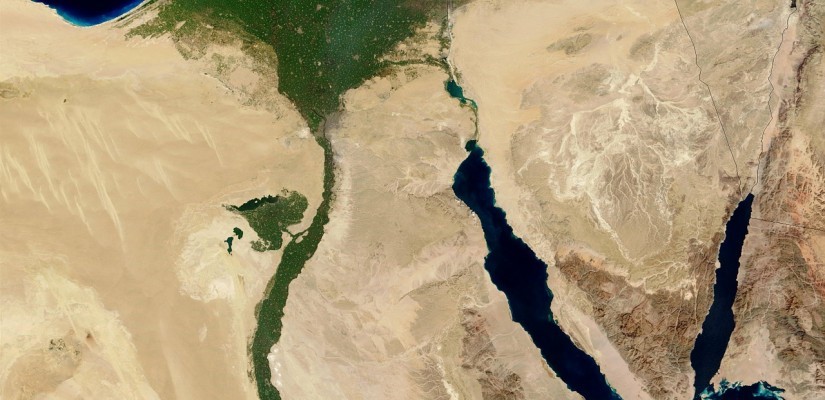Egypt is emerging as a strong regional player in the area of natural gas. The country has made strong efforts to find and develop natural gas deposits in the Eastern Mediterranean and these efforts have led to a boom in Egyptian natural gas production. Egypt hopes to use this bounty as a means to both become a regional energy power and lessening burgeoning domestic energy consumption. However, this rapid development also offers another tool by which Egypt can improve its multilateral relationships with neighboring countries.
Egypt’s first big offshore natural gas success came in 2015, when the Italian firm Eni discovered the Zohr gas field. With a volume of roughly 850 billion cubic meters, the Zohr is the largest natural gas field ever found in the Mediterranean. Development of the Zohr field began at a rapid pace. The field first began producing in December 2017 and in 2018 12.2 billion cubic meters of natural gas were extracted. It is expected that the production will continue to rise in 2019 and that the field will eventually be producing about 56 million cubic meters per day.
But Egypt is not placing all its bets on the Zohr field. It has brought in Dana Gas to begin test drilling in other areas that could yield other finds. Dana Gas is currently seeking to test a series of block that could hold in total to about two-thirds of the volumes of the Zohr field. If predictions hold, these findings could further buoy Egyptian strength as a regional energy powerhouse. Shell, ExxonMobil, and BP have also all been awarded concessions for broader exploration as well. Any finds they make will only add to this boom.

Further segmenting Egypt’s position is that it possesses numerous underutilized processing plants for natural gas. If these were to be brought up to full capacity, as Egypt hopes to accomplish, they could play a key part in Egypt’s energy ambitions. Natural gas from other countries in the region could be piped to Egypt for liquefication and subsequent maritime shipping. Such a scenario has been mentioned as a possible arrangement with Israel, which is also developing its natural gas resources and seeking potential export partners.
Additionally, gas has non-economic uses. Egyptian President Abdel Fattah al-Sisi has made relations with other African countries a key focus of his presidency. He has paid almost 20 visits to other African countries and has taken responsibility for chairmanship of the African Union in 2019. He has paid multiple visits to Ethiopia and Sudan in addition to ramping up Egyptian efforts in pushing for security and economic co-operation with other African countries. The development of Egyptian natural gas provides additional means by which Sisi can further augment relations with other countries in the region. Arrangements to provide gas to other countries in the regions would deepen ties and lay the foundation for further cooperation to address regional issues. Natural gas diplomacy is thus an obvious tool for Sisi to employ in pursuit of his foreign policy objectives.
Egyptian gas is not only an opportunity for energy companies, it is an opportunity for Egypt to take a more prominent role in the North African region. The country is thus certain to continue to enthusiastically pursue development of this sector.
